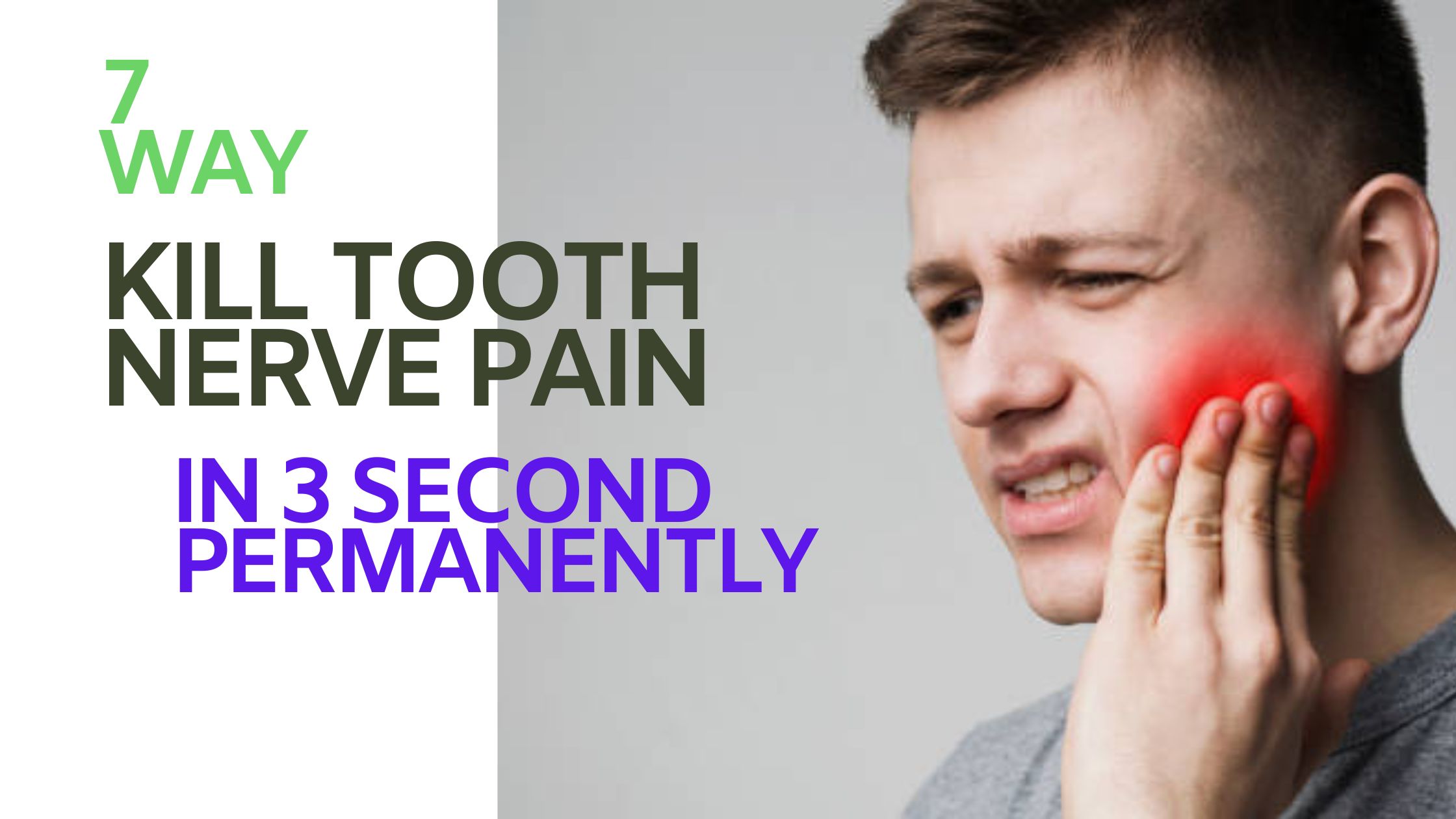Nerve In Tooth Pain Relief

The anguish of tooth pain can be debilitating, affecting every aspect of daily life. At the heart of this discomfort often lies the nerve, a complex bundle of fibers responsible for transmitting pain signals to the brain. Understanding the role of the nerve in tooth pain is crucial for devising effective relief strategies. This exploration delves into the anatomy of tooth pain, the causes of nerve sensitivity, and most importantly, the array of treatments available for alleviating this distress.
Anatomy of Tooth Pain
To grasp how tooth pain occurs, it’s essential to understand the basic anatomy of a tooth. Each tooth is comprised of several layers: the outer enamel, the dentin beneath it, and at the core, the pulp. The pulp contains the tooth’s nerve and blood vessels, playing a vital role in tooth sensitivity and pain. When the enamel or dentin is compromised due to decay, cracks, or gum recession, the nerve can become exposed or irritated, leading to pain.
Causes of Nerve Sensitivity
Several factors can contribute to nerve sensitivity and tooth pain. Perhaps the most common is dental decay, where bacteria in the mouth break down the tooth’s enamel, potentially reaching the dentin and pulp. Other causes include:
- Gum Recession: When gums pull back from the teeth, they can expose the roots, which are covered by a thinner layer called cementum. This exposure can lead to sensitivity and pain.
- Cracked Teeth: Teeth that are cracked or fractured can allow bacteria to penetrate to the pulp, causing pain and sensitivity.
- Grinding and Clenching: Habitual grinding or clenching of the teeth can wear down the enamel, exposing the dentin and leading to sensitivity.
- Tooth Whitening Products: Some individuals may find that tooth whitening products increase their tooth sensitivity, as these products can penetrate the tooth enamel and reach the nerves.
Relief Strategies
Fortunately, there are multiple approaches to managing and relieving tooth pain caused by nerve sensitivity. These range from home remedies and lifestyle adjustments to dental procedures.
Home Remedies
- Desensitizing Toothpaste: These toothpastes contain ingredients like potassium nitrate or strontium chloride that help block the dentinal tubules in the teeth, reducing sensitivity.
- Salt Water Rinse: Rinsing with warm salt water several times a day can reduce swelling and ease pain.
- Cold or Warm Compress: Applying a cold or warm compress to the cheek near the aching tooth can help dull the pain.
Lifestyle Adjustments
- Dietary Changes: Avoiding extremely hot, cold, sweet, or acidic foods can help reduce triggers for tooth pain.
- Good Oral Hygiene: Regular brushing and flossing can prevent decay and reduce the risk of nerve exposure.
- Avoiding Grinding and Clenching: Practicing relaxation techniques or wearing a mouthguard at night can help reduce the impact of grinding and clenching.
Dental Procedures
- Fillings: For teeth with decay, fillings can repair the tooth and prevent further irritation of the nerve.
- Fluoride Varnish: Applying fluoride varnish can help strengthen tooth enamel and reduce sensitivity.
- Root Canal: In cases where the pulp is severely damaged, a root canal may be necessary to remove the infected pulp, relieving pain.
- Extractions: As a last resort, if a tooth is beyond repair, extraction may be necessary to alleviate pain and prevent infection.
Emerging Trends in Nerve Pain Relief
The field of dentistry is continually evolving, with new technologies and techniques being developed to manage tooth pain more effectively. One of the promising areas is the use of laser technology for dental procedures, which can be less invasive and potentially reduce healing times. Additionally, advancements in materials science have led to the development of more durable and less sensitive dental restorations.
Conclusion
Tooth pain, often rooted in nerve sensitivity, is a common yet treatable condition. By understanding its causes and exploring the range of relief options available, from simple home remedies to more complex dental procedures, individuals can find effective solutions to alleviate their discomfort. Whether through preventive measures, lifestyle adjustments, or professional dental care, managing tooth pain is within reach, allowing for a return to a comfortable and healthy quality of life.
How can I prevent tooth sensitivity and nerve pain?
+Preventing tooth sensitivity and nerve pain involves maintaining good oral hygiene through regular brushing and flossing, avoiding extreme temperatures and sugary foods, and visiting your dentist regularly for check-ups and cleanings. Using a desensitizing toothpaste and a soft-bristled toothbrush can also help reduce sensitivity.
What are the signs that I need a root canal?
+Signs that you may need a root canal include severe toothache pain, particularly when eating or drinking hot or cold items, swelling and tenderness in the gums, or a cracked or broken tooth. If you experience any of these symptoms, it’s crucial to consult a dentist as soon as possible.
Are there any natural remedies for nerve pain in teeth?
+Yes, several natural remedies can help alleviate nerve pain in teeth. These include rinsing with salt water, using clove oil due to its analgesic properties, and avoiding triggers like hot, cold, or sweet foods and drinks. However, it’s essential to consult with a dentist to identify the underlying cause of the pain and receive proper treatment.


